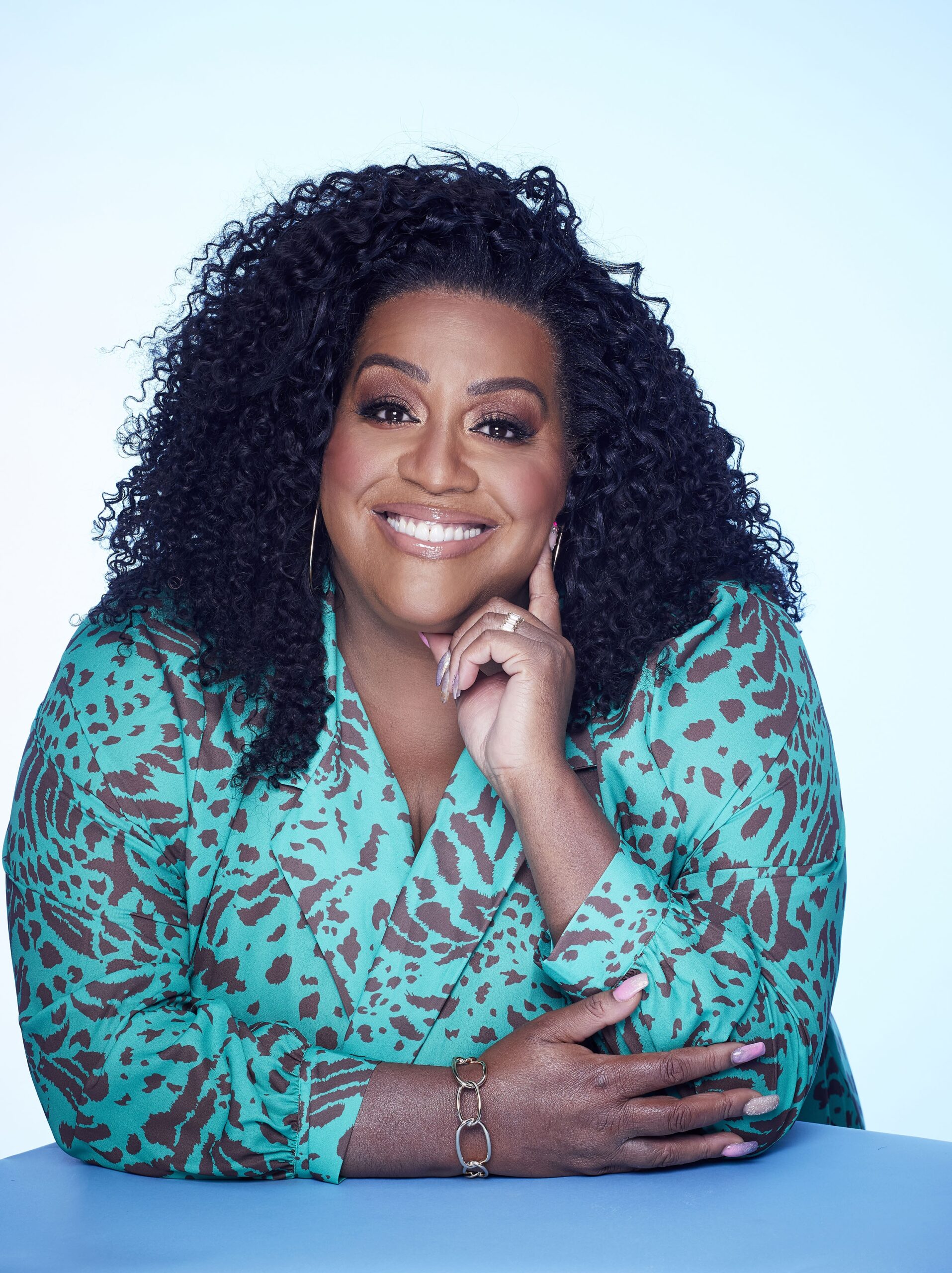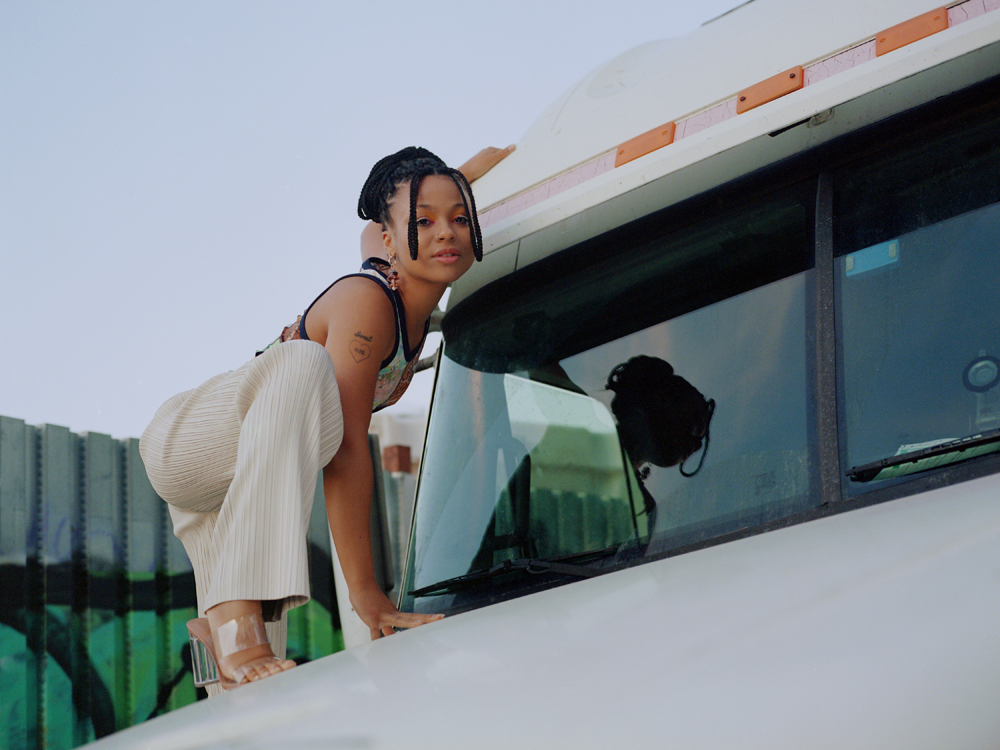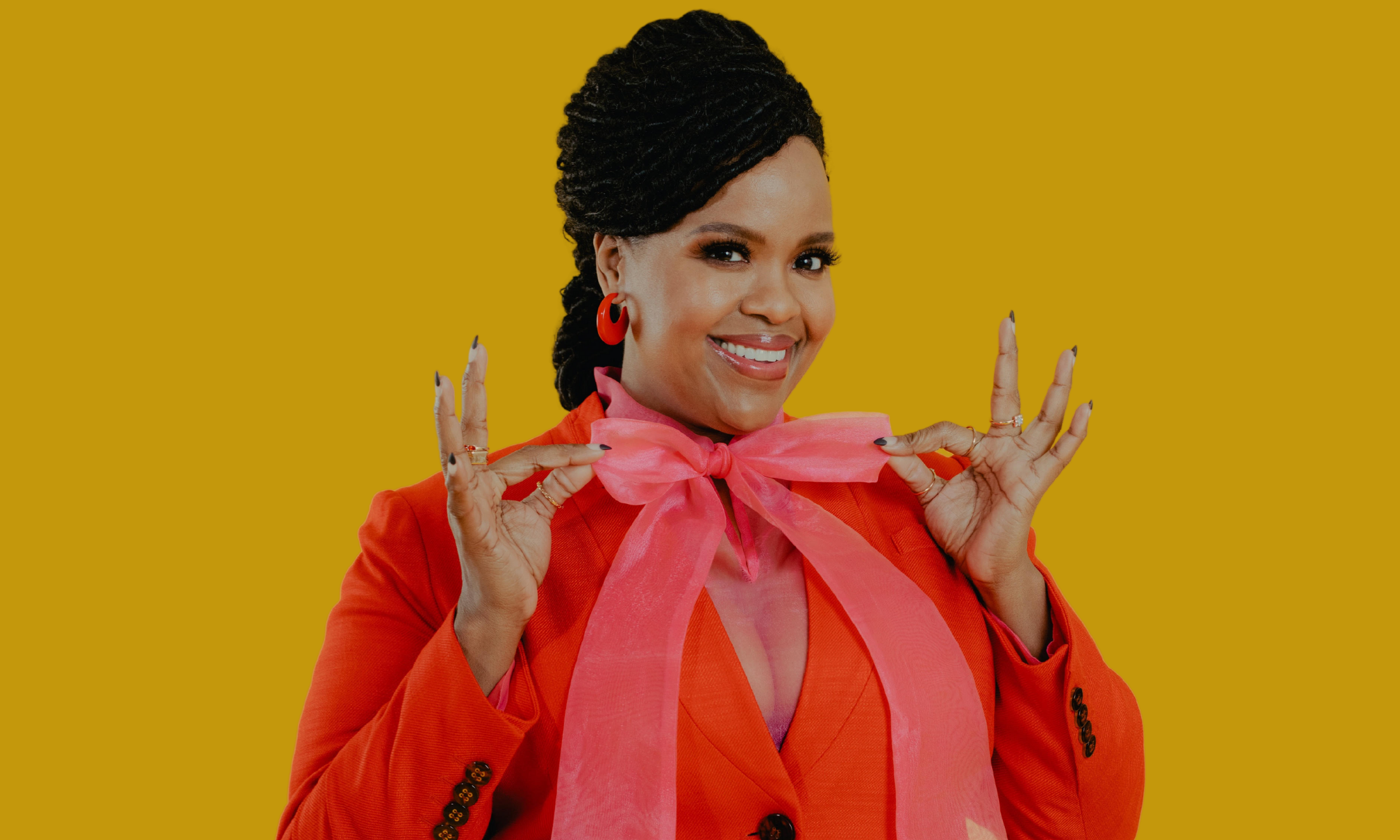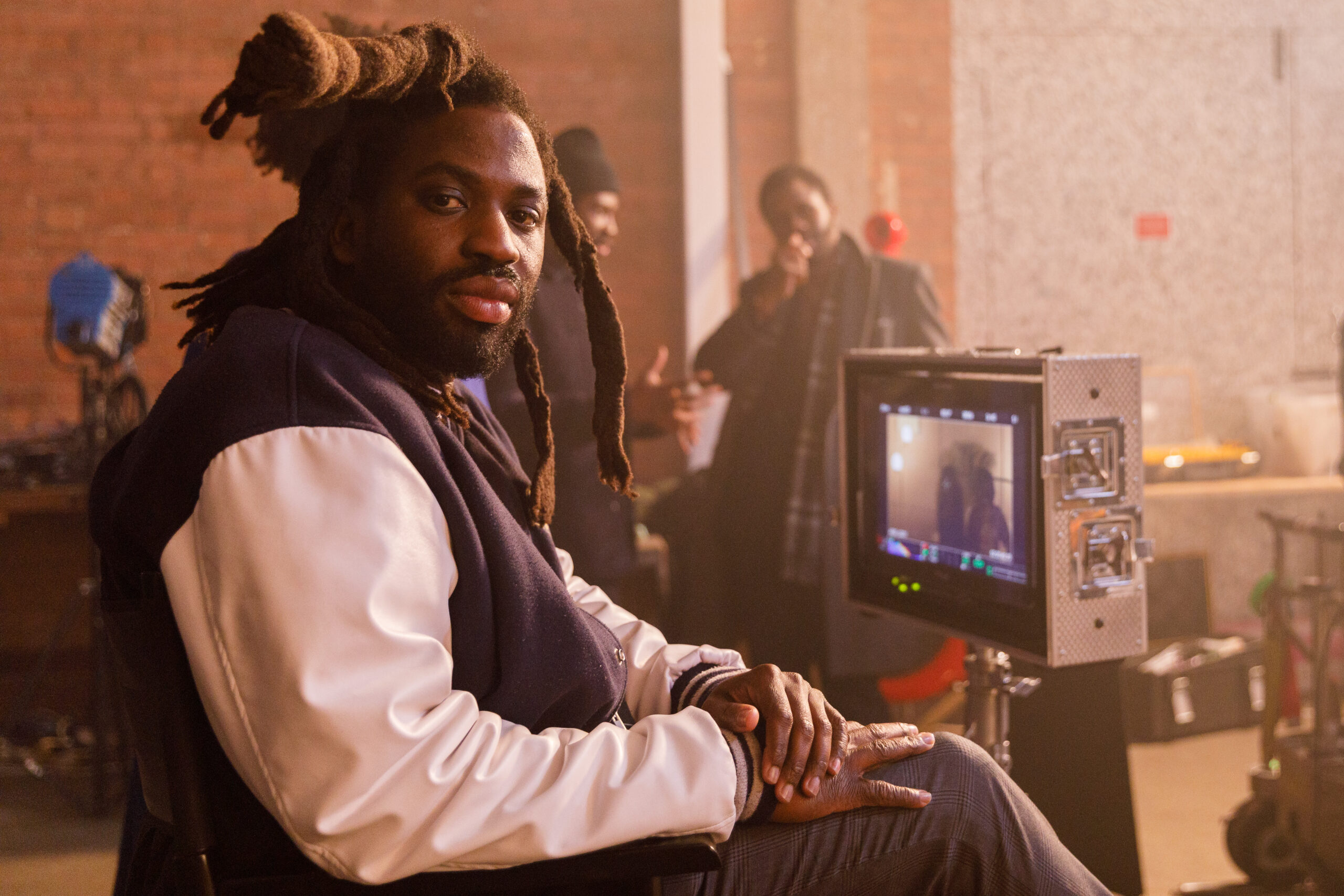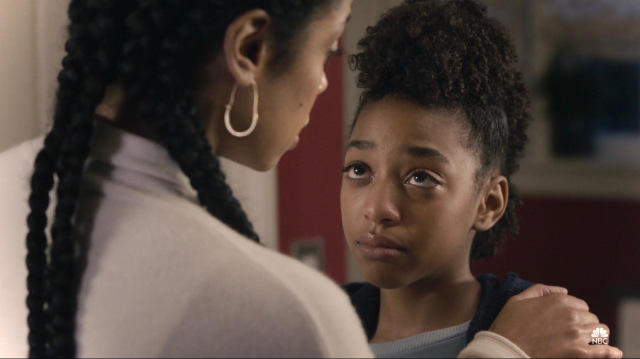
Relive your teens via this oral history of Waterloo Road
15 years after the iconic series aired, the creators reflect on how it all came together
DiyoraShadijanova and Editors
19 Apr 2021
Cast your mind back to the late noughties. La Roux and Taio Cruz are on the radio. The swine flu pandemic (lol) is in full swing. Britain’s Got Talent is in its prime with Diversity winning and Susan Boyle coming a close second. Joe McElderry has just won X Factor. You’ve picked your GCSE options for next year, made a Tumblr and are on the verge of ditching MSN. Life feels expansive and chaotic and hopeful. Wednesday night is the only evening when Tanya isn’t burying Max Branning alive on Eastenders, but you don’t mind because Waterloo Road, the show everyone talks about in form time, is on at 8pm on BBC One.
With addictive and salacious plotlines, Waterloo Road was the pinnacle of British TV and for those of use coming of age in that era, it was a cultural staple. It was also one of the first BBC prime-time dramas to be filmed in the north of England with a diverse, attractive cast clearly sought to represent modern British youth.
Many of the characters went through adolescence against a chaotic backdrop. Dante and Chlo, two 16-year-old students, got married. Poor Sambuca was diagnosed with leukemia. Denzil brought a gun to the school. All the teachers were shagging each other. At some point George Sampson (the singing in the rain boy from Britain’s Got Talent) made an appearance and then there was that very hot guy who played Jonah. It was all uniquely progressive for its time.
On its 15th anniversary, we spoke to the creators of the show about how it all came together:
“We wanted it to be real. It’s set up in Rochdale so you wanted it to be gritty and as real and urban as possible.”
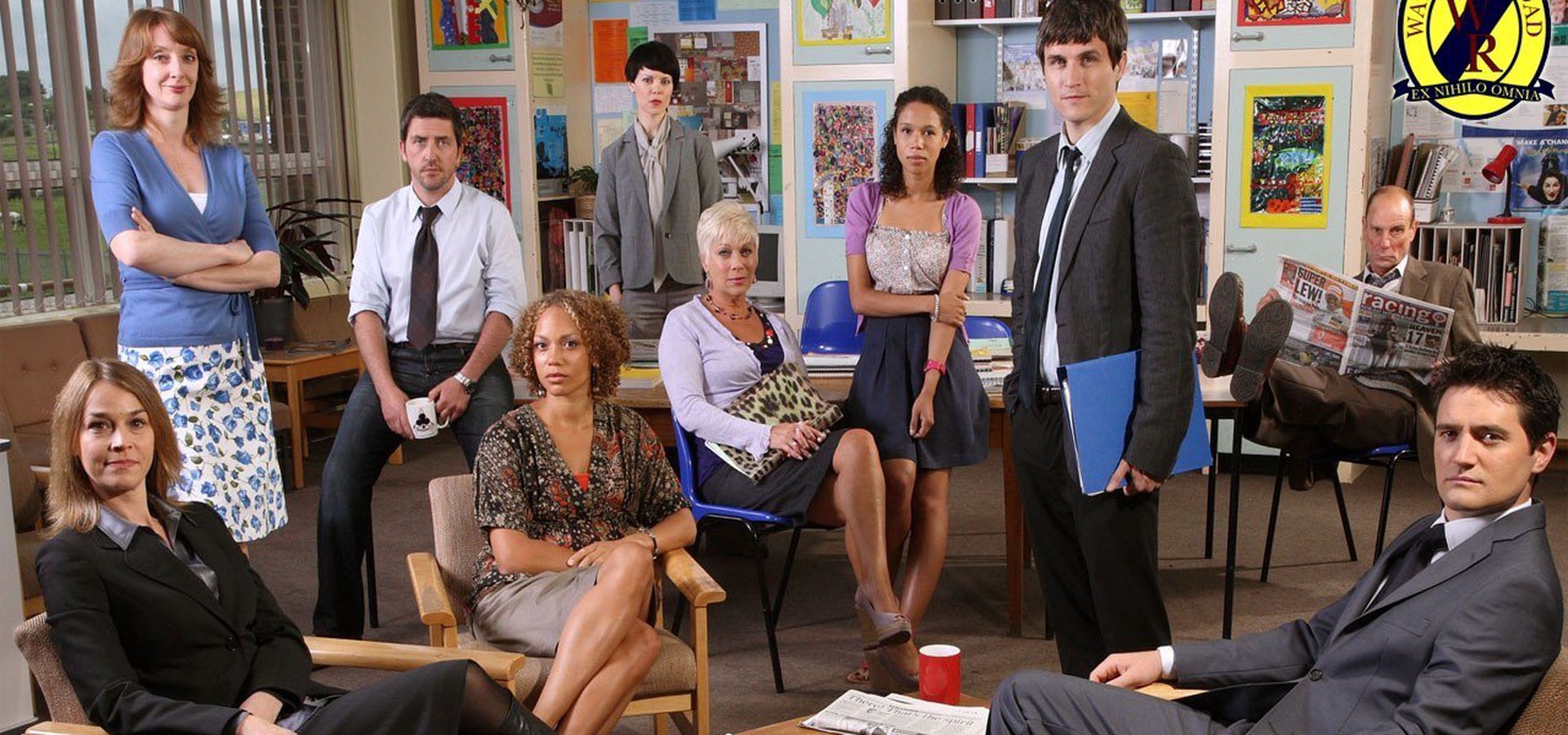
How Waterloo Road was born
Eileen Gallagher, former CEO of Shed Productions (the company that produced Waterloo Road): “We were watching a documentary about a famous educationalist, she was quite right-wing but was famous for turning schools around. Ann [McManus, one of the lead writers] and I were absolutely riveted. At the time, the BBC invited Shed productions among other four or five independents and wanted a long-running work-based drama. They asked if we had any fresh ideas. I said: ‘we’ve had lawyers, nurses, doctors all the usual suspects, what we’d really like to do is school education’. We were in a competition with all these other shows they green-lit, but Waterloo Road won the competition.”
Ann McManus, former Creative Director and Writer at Shed Productions: “My mum’s a teacher, my aunt’s a headteacher, my brothers are teachers, my sister was a teacher and I was a teacher too. I’ll never forget coming from a school called Queen Margaret Academy [in Ayr, Scotland]. It was well run, well disciplined and very well regulated. But then I walked into Castlemilk High, [a school she taught in, in Glasgow], and it was chaotic. Kids were eating crisps and drinking coke and chucking everything around and I thought ‘oh my god’. It was a bit of a shock. So it made a profound impact on me. I realised that it was so important for children to have a big hug around them so that they weren’t scared to be in class, and I felt like my children didn’t feel that sense that someone was looking after them. That inspired the show really.”
Brian Park, former executive producer at Shed Productions: “We wanted it to be real. It’s set up in Rochdale so you wanted it to be gritty and as real and urban as possible. It wasn’t going to be a sanitised show in that sense. It really felt like a community and we weren’t trying to portray the teachers as heroes, they were flawed characters.”
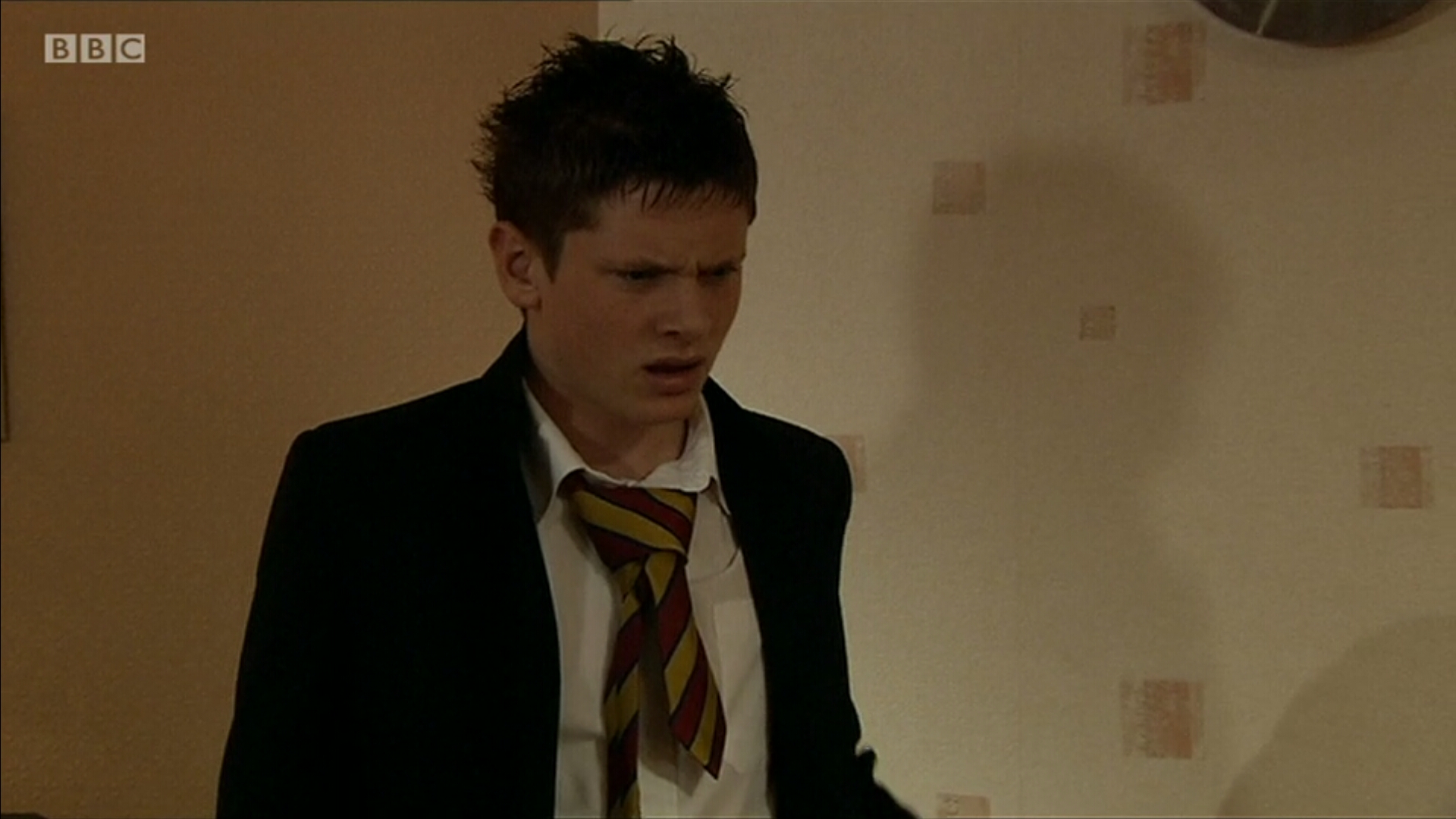
The show was a fame accelerator for many of the cast
Waterloo Road was the starting point for many exciting acting careers in the UK. The show featured Jack O’Connell, who then went on to play Cook in Skins and is now a Hollywood star, Phoebe Dynevor and Rege-Jean Page who both played the leading roles in season one of Bridgerton and Angela Griffin, who was a long-term regular on Coronation Street and other notable British dramas.
Reece Douglas (played Denzil Kelly 2009-2012) : “For me, it was a whirlwind. I’d never been on TV before, never stepped on the TV set before. And to be on such a predominant show at such a young age and get thrown in as deep… one of my first episodes was with a gun. Certainly, when you’ve got the director, you’ve got the crew members all saying that the SWAT team is going to come in with real guns. It wasn’t necessarily so much acting for me. It was real because I was actually shitting myself.”
Darcy Isa (played Lauren Andrews from 2009-2012): “I used to get up at 5:30 in the morning and work until 7:30 at night. When you’re 14 it can be a lot. I was still having to keep up with my schoolwork. Up to a certain age we had tutors and chaperones while we were on set. I think 15. And we had to have a set amount of tuition a week. We filmed for six months on and six months off. So I’d have to take two months off school at a time.”
RD: “I’m from Cheshire. And I was never really academic. Not to say that I wasn’t smart, I was just the kid that couldn’t be arsed, putting his head down. I was always the guy that wanted to be the class clown and didn’t really pay attention in class. But one thing was that I really did enjoy my drama, so my teacher picked up on it and introduced me to a casting director.”
RD: “It was almost like one big family. Everyone was so bubbly on set. We had two green rooms, one for the under sixteens. And then over-16s were allowed into the adult green room.”
DI: “It was obviously a little strange environment because you had the people playing the teachers and they were older cast and then you had 25 year olds playing 17-year-olds and then the rest of the younger actors. Everyone was really respectful though and I always felt like the energy was good.”
“We had to have chaperones and most of the time our mums were chaperones so all of our mums became friends. It was a whole family affair.”
RD: “I was recognised a lot and used to have to wear a cap everywhere. There was a time when I was with my friends at a train station and there were two school classes getting off a train. One of the kids asked ‘is that Denzil?’ and then I had to be escorted to my own carriage and lock the doors behind me. It was crazy, but my friends and my family supported me and helped me through it.”
Inside the risque themes and dramatic plotlines
When it aired, Waterloo Road made a name for itself for tackling sensitive issues around the students’ lives, with many of the storylines making commentary on class, race, mental health and often, different forms of abuse. Some of the most memorable moments include Sambuca getting diagnosed with leukaemia and the effect of her illness and death on her friends, Lindsay killing her father because it was revealed that he abused her for years and Lula going through an exorcism because her uncle thought she was possessed – the same character was later at risk of deportation.
DI: “A lot of the characters were really developed in their family roles, so the show did cover a lot of cultural backgrounds. Because I was so young when I joined and I’d been brought up in a diverse background, [the diversity of the show] was a normality for me. Whether this was on purpose, I don’t know, but it was done well.”
EG: “The show was political but not with a capital p. Ann was very keen to represent what was actually going on at the time. It’s the most universal thing in the world, the relationship between children, parents and teachers. At the beginning of every series, Ann used to start researching it by going to the shops and buying magazines with problems pages. Because that would give you the very current things that were bothering children.”
KB [on the show’s diverse and issue-driven storylines]: “We didn’t want to make a didactic show and be like: ‘this is about racism’. That’s where diversity class and race would come into it. You had to make it real, I think, otherwise it wouldn’t sustain the audience.”
EG: We didn’t try to overdo the ethnicity mix or under do it. We used local kids for extras, so we first started shooting it in Rochdale and the kids used to wait round the gate. They’d get £15 a day or something which was a fortune for them.”
“I bought The Observer the weekend it came out and the review said it was a surefire 100% and I went ecstatic”
EG: “I think really we cast it as quite colourblind in terms of issues. A lot of the storylines we did tiptoed into cultural things that may not be allowed these days, like the story about Lula’s exorcism. The BBC was always quite nervous about what we were going to do next. We were slightly oblivious about upsetting people because we just thought ‘this is real, this is what happens, that’s a story we’ll do it!’”
AM: “We had researchers to go and speak to the people the issues [we covered] would affect. And Maureen Chadwick (the co-writer of Waterloo Road) was obsessed with getting the language right. We didn’t try to make any difference between our Black pupils and white pupils, they occupied the same spectrum for us.”
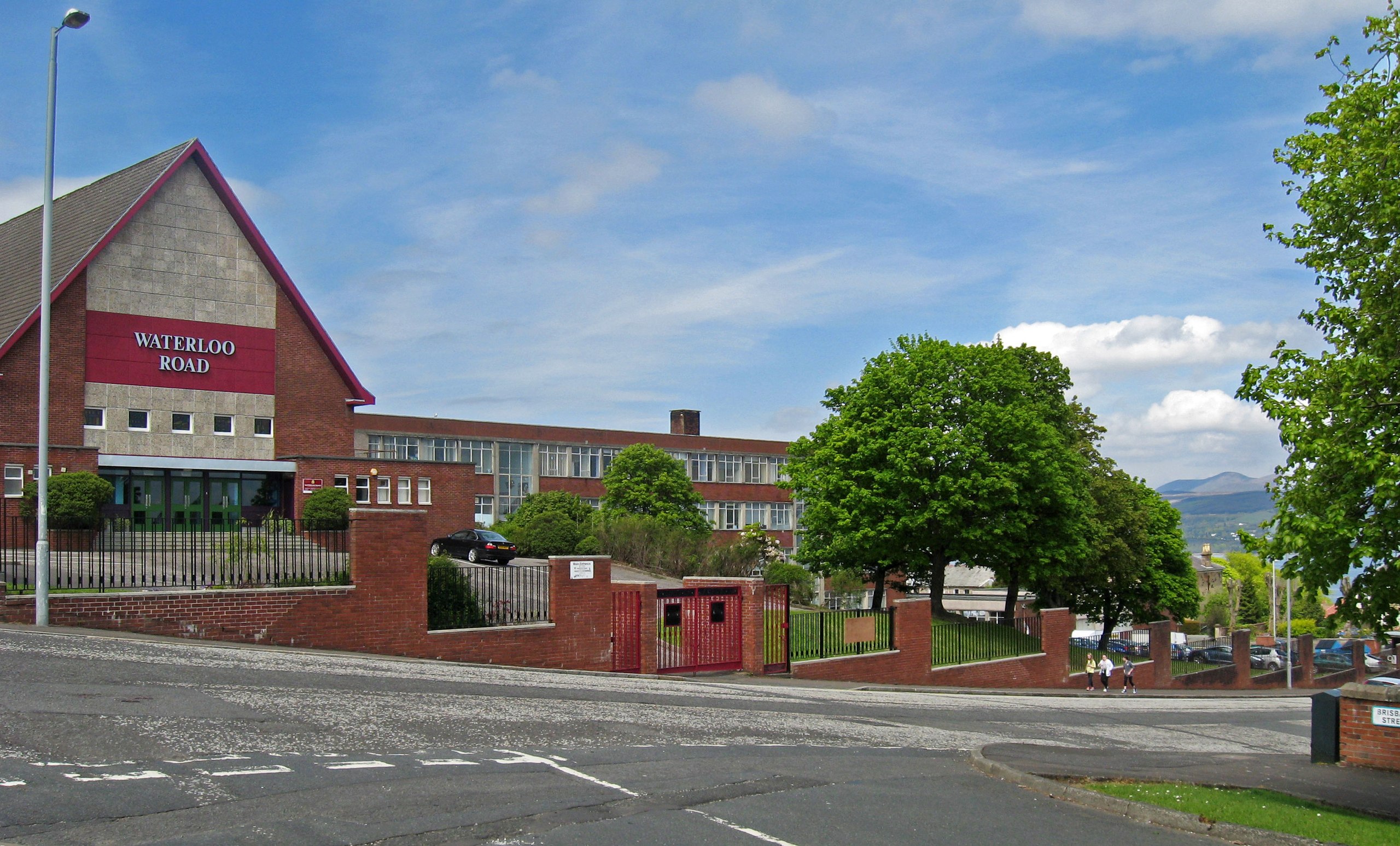
What about that unexpected move to Scotland?
In 2011, producers suddenly decided to transfer the entire Waterloo Road school in Rochdale to Greenock in Scotland. At the time the news was shocking (and confusing) to the audience, but the way the writers dealt with this was by coming up with an elaborate storyline. In the series, the move was explained away by the fact that local education authorities had decided to close the school, but headmaster Michael Byrne is contacted by Lorraine Donnagan – a businesswoman and former student – who says she’ll sponsor the school’s relocation to Scotland. So the school is saved once more.
EG: We moved to Scotland because it was the only way we could keep the show running and that’s the politics of the BBC. We were an independent company and there aren’t many independents that run soaps. The BBC really want to own everything they do, because we were independents, this means we were always first in line to be axed. So we knew that they were looking for reasons to stop the show, [despite] the ratings [being] really good.”
“They said there was a big problem in Scotland [in that there weren’t enough productions up there] and also because we’re Scottish patriots, we loved the idea of having an idea of having a big production in Scotland. We knew it would buy an extra couple of years, which it did. Ann came up with a pretty good storyline that meant we could actually get the teachers up there.
AM: “It wasn’t that good!
EG: “It was as good as we could get! It was definitely a broadcasting political move that we went along with to save the show’s longevity.”
DI: “I think for me it was just predominantly a northern gritty Manchester show and when it moved up to Scotland it lost that. It lost that edge and I think the building itself meant so much as well.”
The ugly bits we didn’t see
BP: “The biggest challenge was the size of the cast and the very extensive set because we took over an actual school. Such a sprawling set meant that there were so many classrooms, corridors and even the playing fields outside. Following people to their individual houses was logistically very challenging. And having to schedule all of that in was quite difficult.”
EG: “Ann created a strict rule that every episode had to start at the beginning of the school day and finish at the end of the school day. So you had to come into every story at the crisis and it really worked. Some of the show’s writers found that difficult.”
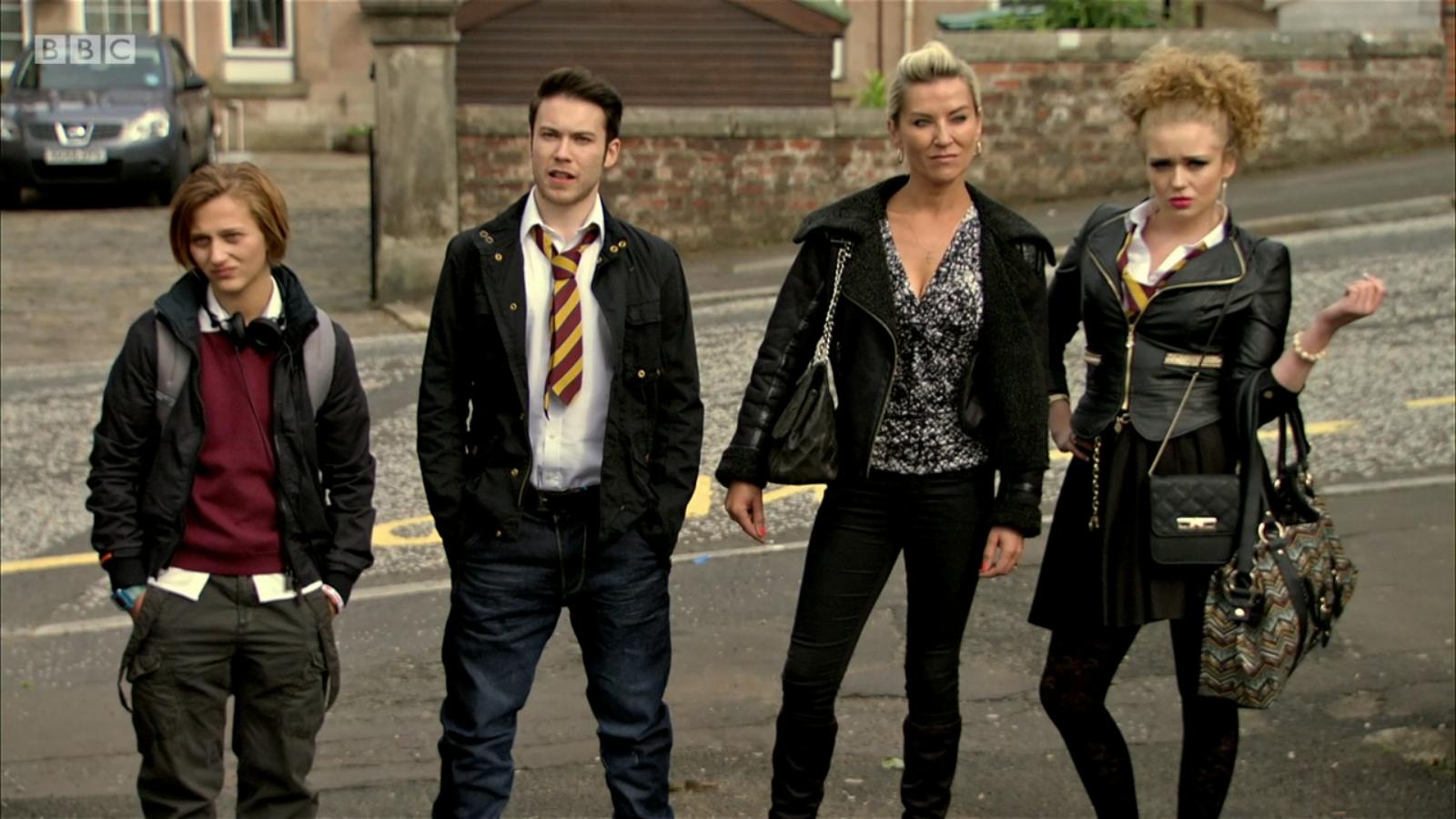
Did Waterloo Road age well?
EG [on the reception at the time] : “When the BBC first saw the pilot, they called Brian in and said it was untransmittable. They said: ‘we cannot air this show. The children are the devil’s spawn, everyone is horrible and we didn’t know it was going to be so horrible.’ And the room started to spin. They then gave it to focus groups and the focus groups came back undermining the BBC. It just shows how these gatekeepers can actually be way behind an audience. They held back the transmission by about six months.”
AM: “I bought The Observer the weekend it came out and the review said it was a surefire 100% and I went ecstatic. It was very well reviewed at the time and I was so pleased.”
BP: “The show struck a chord. We did 10 seasons and about 200 episodes in the end. We got very high approval ratings, so we knew we were doing something right.”
RD: “There was a storyline where students found pure alcohol in a chemistry lab and got drunk. We later found out that real students had actually gone into school and were doing the same thing and one girl was taken to a hospital. That was a moment when I think one of the actors had to come out of character and go around schools and talk to them to say: ‘this isn’t good, you shouldn’t be doing this.””
DI : “I think the show has aged well because a lot of the topics that we covered are still relevant. There are some things that probably, because at the time when the writers were saying they weren’t consciously thinking about diversity, that could have been tapped into a bit more – like all the discussions we’re having now about race and class.”
A potential reboot?
A recent Waterloo Road reunion over Zoom including OG favourites like Grantley Budgen, Tom Clarkson, Janeece Bryant and Kyle Stack (played by George Sampson) has sparked rumours of a potential revival, but is it really on the cards?
EG: “If you made the show again, and I think they should, as it’s very highly rated on BBC iPlayer and is such a universal thing where the stories would just keep coming, it would be wonderful to [show Covid] and the absence of school in children’s lives. It would make people realise just how much structure schools provide and that getting away from your home is very important.”
AM: “[A reboot] would be cracking! You could have a whole five series on lockdown, it would be brilliant. The kids would love it!”
Quotes have been edited for length and clarity.

